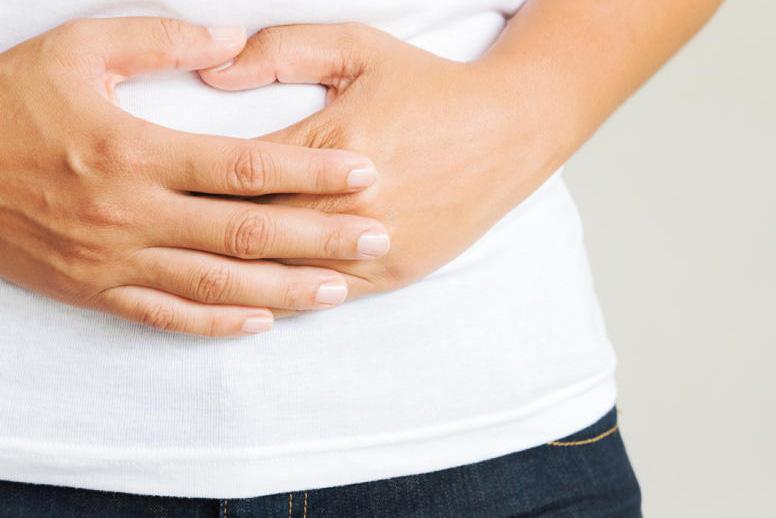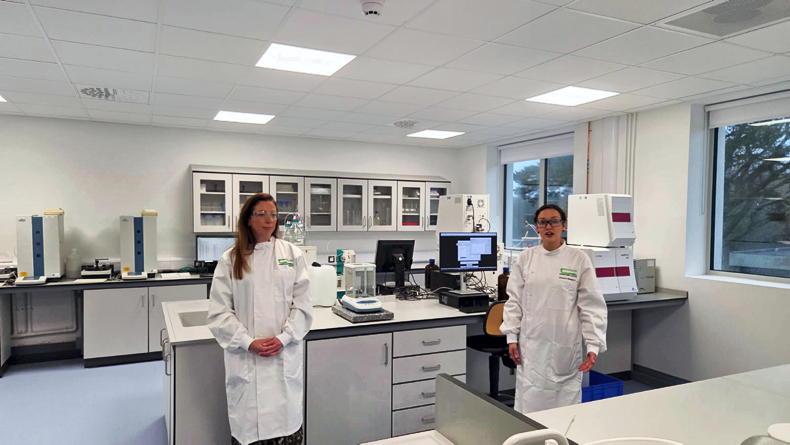Most of us have experienced a tight and bloated feeling in our stomachs at some stage. Some is temporary as a result of overeating but for others it can be a little more common and in some cases affect quality of life. Know that you’re not alone and all it may take are some little adjustments to get your tummy back on track.
Causes of bloated tummies
Diet: The first area we should look at in terms of bloating are the foods that cause the irritation. Increased consumption of processed foods, as well as foods high in fat and sugar can put pressure on our digestive system, so it’s important to ensure your food is high-quality, opting for fresh produce as much as possible.
Irritable Bowel Syndrome (IBS): One of the most common causes of bloating, IBS affects one in five people in Ireland. It has also been found to affect more women than men and more younger women (18-40) than older women. It can include symptoms such as flatulence, stomach cramps/spasms as well as well as irregular bowel habits.
Food intolerance and sensitivity: This is difficulty digesting certain foods. It can cause inflammation of the digestive system, resulting in symptoms, such as bloating and tummy pain, usually a few hours after eating the food. (Feel free to contact me directly if you feel you may have a food intolerance or sensitivity.)
Hormonal changes: Many people experience bloating before and during their periods due to hormonal changes and water retention.
Practical strategies
Walking: Even a gentle walk can get your digestive system working more efficiently through helping the movement of gas and gently promoting bowl movements. Aim for a minimum of 20 minutes physical activity per day.
Have a bath: The heat of the bath not only helps to soothe a sore tummy but it can also help you relax and reduce stress. In turn, this allows your digestive system to function more effectively and helps reduce bloating.

Nutritionist Laurann O’Reilly.
Dietary strategies
Eat plenty of fibre: Having enough and the right types of fibre is essential to maintaining a healthy digestive system. Aim for a balance of insoluble fibre (doesn’t dissolve in water) such as brown/wholegrain bread, pasta, cereals and rice and soluble fibre (dissolves in water) such as oats, chia seeds, flaxseed, fruits and vegetables. A balance of both types of fibre helps to support regular bowel movements.
Drink water: It’s important to stay well hydrated. Not only does it aid the passage of food through to your stomach but it also helps to improve your digestion and prevent constipation. Aim to drink a minimum of one and a half litres of water every day and reduce your intake of caffeine.
Eat more slowly: Many of us are guilty of eating too quickly or on the go. However, swallowing food too quickly can introduce air into the digestive tract. Try to take the time to eat your meals and chew your food, your tummy will thank you.
Avoid fizzy or carbonated drinks: Fizzy and carbonated drinks including sparkling water contain carbon dioxide gas that can build up in the stomach, resulting in bloating and gas. Choose fruit infused water instead.
Probiotics: Sometimes our tummy bacteria can become imbalanced due to reasons such as stress, illness, antibiotics or dietary changes. It may be worth taking a course of probiotics to rebalance (three months is usually sufficient). I prefer the Udos and OptiBac range, however you can consult with your pharmacist as to the most suitable one for you.
Avoid artificial sweeteners: Artificial sweeteners such as aspartame, sucralose and saccharin contain a form of sugar alcohol. Studies have found that is often hard to digest and can result in symptoms such as gas, bloating and diarrhea. Try a natural sweetener alternative such as stevia instead.
Avoid chewing gum: The sugar alcohols in gum can cause bloating in some people as many contain the artificial sweeteners listed above. Swallowing air while chewing can also lead to bloating and gas pain
Tummy Teas
Mint: Have you ever wondered where the tradition of giving mints after a meal came from? Mint has natural muscle-relaxing abilities, allowing intestinal muscles to calm. Mint also improves bile flow helping fats to digest more easily.
Ginger tea: Ginger tea is made from the ‘rhizome’ part of the ginger plant which has been found to be hugely beneficial for treating nausea, stomach upset and bloating due to its anti-inflammatory properties.
Peppermint tea: Peppermint has long been used as a natural remedy for bloating and digestive health. The ‘menthol’ component in the leaves not only enhances the flavour but is also anti-inflammatory.
Chamomile tea: Has been shown to reduce fluid retention as well as soothe the walls of the intestine and stomach.
Laurann O’Reilly is a qualified nutritionist and farmer’s daughter from Tipperary, with a BSc. in Human Nutrition from the University of Nottingham and a Master’s in Public Health Nutrition from University College Dublin. See www.nutritionbylaurann.ie or e-mail info@nutritionby.laurann.ie
Note
If symptoms
persist – Please contact your GP to rule out any underlying health conditions
Read more
Health bytes: from myths about food and cancer to antivirals for COVID-19
Home Nurse: foods to help fight inflammation
Most of us have experienced a tight and bloated feeling in our stomachs at some stage. Some is temporary as a result of overeating but for others it can be a little more common and in some cases affect quality of life. Know that you’re not alone and all it may take are some little adjustments to get your tummy back on track.
Causes of bloated tummies
Diet: The first area we should look at in terms of bloating are the foods that cause the irritation. Increased consumption of processed foods, as well as foods high in fat and sugar can put pressure on our digestive system, so it’s important to ensure your food is high-quality, opting for fresh produce as much as possible.
Irritable Bowel Syndrome (IBS): One of the most common causes of bloating, IBS affects one in five people in Ireland. It has also been found to affect more women than men and more younger women (18-40) than older women. It can include symptoms such as flatulence, stomach cramps/spasms as well as well as irregular bowel habits.
Food intolerance and sensitivity: This is difficulty digesting certain foods. It can cause inflammation of the digestive system, resulting in symptoms, such as bloating and tummy pain, usually a few hours after eating the food. (Feel free to contact me directly if you feel you may have a food intolerance or sensitivity.)
Hormonal changes: Many people experience bloating before and during their periods due to hormonal changes and water retention.
Practical strategies
Walking: Even a gentle walk can get your digestive system working more efficiently through helping the movement of gas and gently promoting bowl movements. Aim for a minimum of 20 minutes physical activity per day.
Have a bath: The heat of the bath not only helps to soothe a sore tummy but it can also help you relax and reduce stress. In turn, this allows your digestive system to function more effectively and helps reduce bloating.

Nutritionist Laurann O’Reilly.
Dietary strategies
Eat plenty of fibre: Having enough and the right types of fibre is essential to maintaining a healthy digestive system. Aim for a balance of insoluble fibre (doesn’t dissolve in water) such as brown/wholegrain bread, pasta, cereals and rice and soluble fibre (dissolves in water) such as oats, chia seeds, flaxseed, fruits and vegetables. A balance of both types of fibre helps to support regular bowel movements.
Drink water: It’s important to stay well hydrated. Not only does it aid the passage of food through to your stomach but it also helps to improve your digestion and prevent constipation. Aim to drink a minimum of one and a half litres of water every day and reduce your intake of caffeine.
Eat more slowly: Many of us are guilty of eating too quickly or on the go. However, swallowing food too quickly can introduce air into the digestive tract. Try to take the time to eat your meals and chew your food, your tummy will thank you.
Avoid fizzy or carbonated drinks: Fizzy and carbonated drinks including sparkling water contain carbon dioxide gas that can build up in the stomach, resulting in bloating and gas. Choose fruit infused water instead.
Probiotics: Sometimes our tummy bacteria can become imbalanced due to reasons such as stress, illness, antibiotics or dietary changes. It may be worth taking a course of probiotics to rebalance (three months is usually sufficient). I prefer the Udos and OptiBac range, however you can consult with your pharmacist as to the most suitable one for you.
Avoid artificial sweeteners: Artificial sweeteners such as aspartame, sucralose and saccharin contain a form of sugar alcohol. Studies have found that is often hard to digest and can result in symptoms such as gas, bloating and diarrhea. Try a natural sweetener alternative such as stevia instead.
Avoid chewing gum: The sugar alcohols in gum can cause bloating in some people as many contain the artificial sweeteners listed above. Swallowing air while chewing can also lead to bloating and gas pain
Tummy Teas
Mint: Have you ever wondered where the tradition of giving mints after a meal came from? Mint has natural muscle-relaxing abilities, allowing intestinal muscles to calm. Mint also improves bile flow helping fats to digest more easily.
Ginger tea: Ginger tea is made from the ‘rhizome’ part of the ginger plant which has been found to be hugely beneficial for treating nausea, stomach upset and bloating due to its anti-inflammatory properties.
Peppermint tea: Peppermint has long been used as a natural remedy for bloating and digestive health. The ‘menthol’ component in the leaves not only enhances the flavour but is also anti-inflammatory.
Chamomile tea: Has been shown to reduce fluid retention as well as soothe the walls of the intestine and stomach.
Laurann O’Reilly is a qualified nutritionist and farmer’s daughter from Tipperary, with a BSc. in Human Nutrition from the University of Nottingham and a Master’s in Public Health Nutrition from University College Dublin. See www.nutritionbylaurann.ie or e-mail info@nutritionby.laurann.ie
Note
If symptoms
persist – Please contact your GP to rule out any underlying health conditions
Read more
Health bytes: from myths about food and cancer to antivirals for COVID-19
Home Nurse: foods to help fight inflammation











SHARING OPTIONS